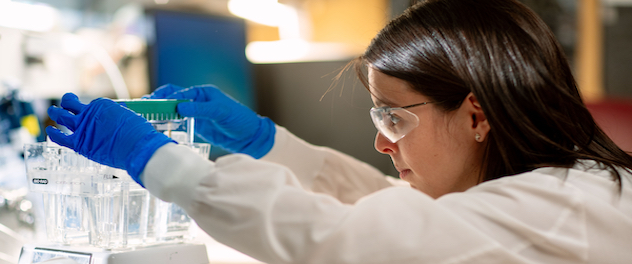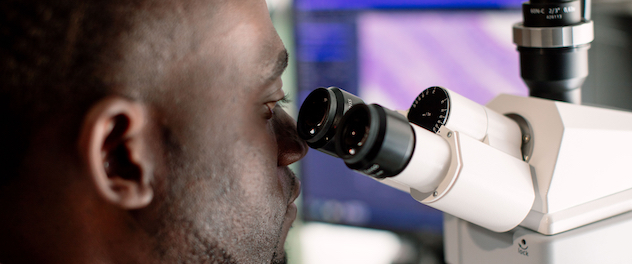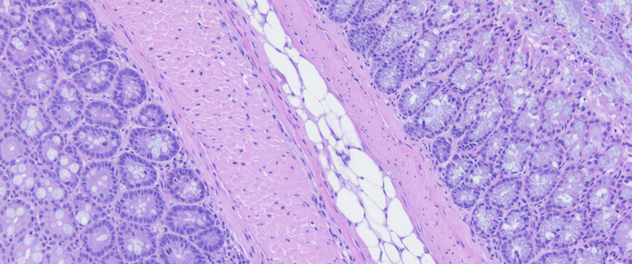-

Discovering new therapeutic treatments for inflammatory bowel disease
Dr. Faubion's lab seeks to discover, identify and develop individualized treatments to improve treatment options for people with inflammatory bowel disease (IBD).
-

Characterizing the epigenetics of T-cell fate decisions
Understanding the regulatory mechanisms necessary for T-regulatory (Treg) gene expression will help improve Treg suppression in the setting of intestinal inflammation.
-

Understanding inflammatory and epigenetic mechanisms driving inflammatory bowel disease pathophysiology
Dr. Faubion's lab uses colitis mouse models and humanized mouse models to understand the loss of immunosuppressive function in T-regulatory cells.
-

Building an inflammatory bowel disease biobank to discover molecular signatures
Clinical samples are a critical component in the lab's research to discover new therapeutic targets by examining the molecular signatures responsible for clinical phenotype. Dr. Faubion's team has an active biobank of inflammatory bowel disease samples for analysis using discovery platforms.
-

Using a systems biology approach to study inflammatory bowel disease pathophysiology
Using stool, biopsies, serum and immune cells, the lab takes a systems biology approach toward understanding the complex nature of how molecular networks influence chronic intestinal inflammation.
Overview
Research in the Immuno-Epigenetics Laboratory, led by Dr. William A. Faubion Jr., focuses on resolving the impact of environmental stressors to the underlying immune response through retained epigenetic signatures of epithelial and immune cells. The lab believes that this immuno-environmental interaction is key to the ongoing intestinal inflammation seen in the human inflammatory bowel diseases, Crohn's disease and ulcerative colitis.
Epigenetics is the study of the heritable changes to gene expression without changing the DNA code. Environmental signals influence the dynamics of these epigenetic changes, leading to a heritable alteration of gene expression. Thus, the overall goal of the lab is to understand how environmental factors influence immune cellular development and function through chromatin remodeling.
The lab's focus has been T-regulatory (Treg) cell biology in health and inflammatory bowel disease. The lab has previously identified multiple epigenetic mechanisms responsible for Treg behavior, including polycomb repressor complexes and more recently G9a.
Research focus areas
The lab's goals include:
- Dissecting the epigenetic mechanisms of development and function of Treg and T-helper 17 (TH17) cells.
- Discovering novel molecular mechanisms of inflammatory bowel disease by integrating high-dimensional datasets.
- Optimizing Treg cells ex vivo for adoptive cell therapy.
- Developing novel cell-based and small molecule therapies, particularly addressing TH17 cellular development.
Dr. Faubion's lab uses molecular and biochemical techniques, as well as high-throughput sequencing, to provide an unbiased approach to discover molecular mechanisms driving inflammatory bowel disease. This comprehensive approach develops new therapeutic targets. In addition to these techniques, the lab is investigating clinically relevant epigenetic inhibitors, long noncoding RNAs (lncRNAs) and CRISPR-Cas9 technologies to characterize and modify regulatory T cells.
The lab aims to use this information to develop and offer more-effective clinical therapies. The team has translated findings to the clinic, having completed five phase 1 clinical trials. The team also is responsible for the technology in an ongoing phase 2 trial. View a list of all of Dr. Faubion's trials.
Key research findings include: